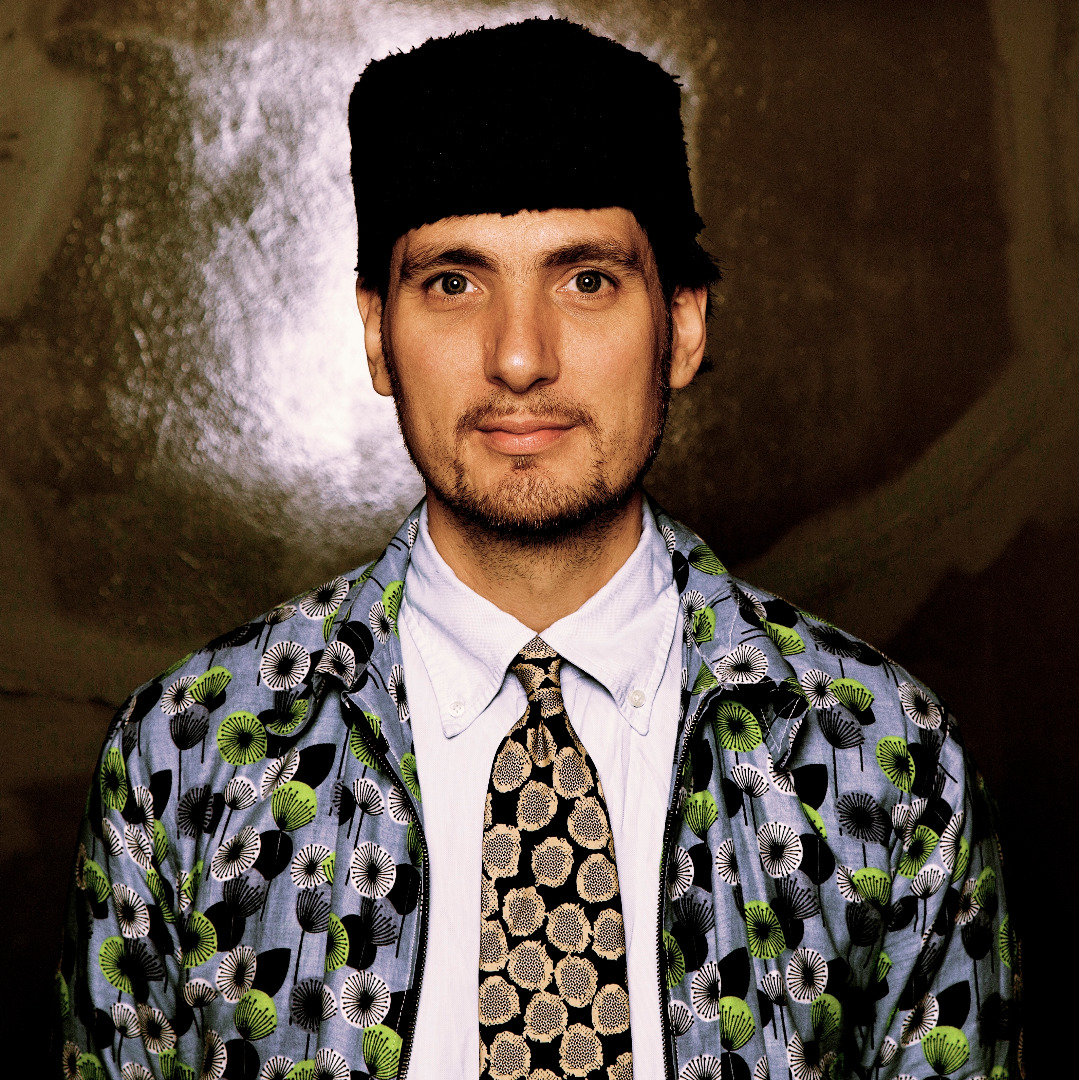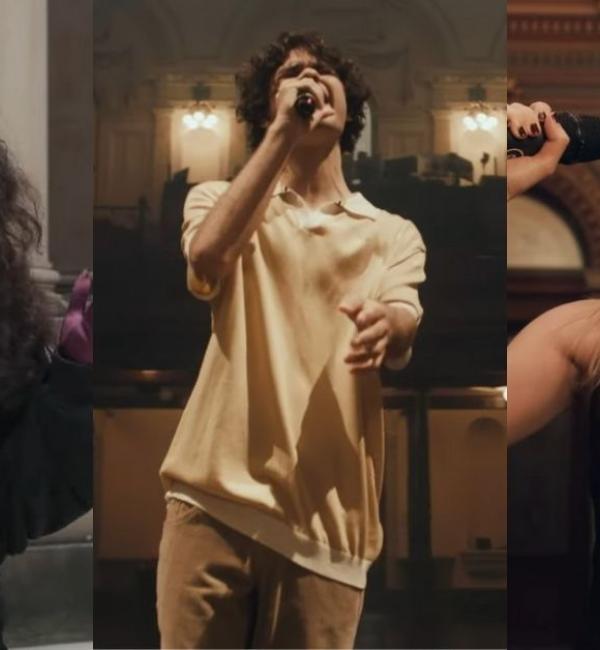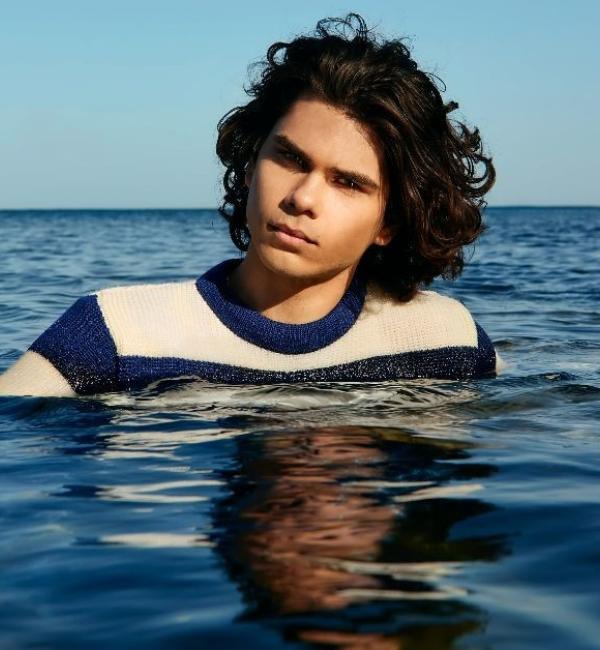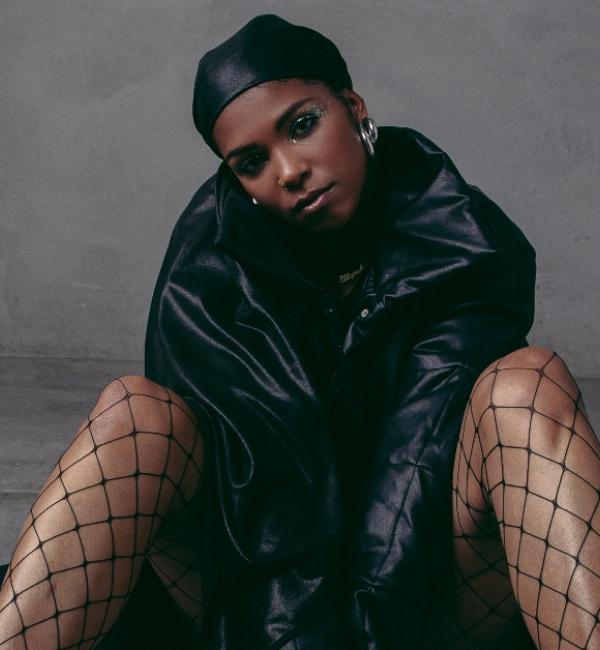
Towards the mid Nineties, Soul Music was in full swing across the globe, manifesting itself in almost all types of music: from the Golden Era of Hip Hop to Jamiroquai’s Acid Jazz topping the charts, Massive Attack’s Bristolian approach to Sound System culture resulting in the genus of Trip Hop and even Dr Albarn and MC Hammer slipping in more than just a sliver of Gospel to their pop hits.
Running a very different race, Germany’s Poets Of Rhythm were releasing the kind of gritty ‘Deep Funk’ that wouldn’t reach many ears till Keb Darge’s ‘Legendary Deep Funk’ came out on a newly minted BBE Records in 1997. Even then, DJ Shadow and Cut Chemist’s legendary DJ mix ‘Brain Freeze’ was two years away. Poets’ founding member Max Weissenfeldt has kept the beat going for nearly three decades and his latest project Philophon is a record label that expands on the Soul foundations he helped lay all of those years ago. He digs very deep in to the crates of life with Cool Accidents’ Huwston.
You’ve been innovating Soulful music styles now for over twenty five years. Do you put your success to being in the right time and the right place, or hard work and creativity? Or do you put it down to something else altogether?
It was a combination of all of it. But I always had a vision which kept me on fire to continue. And when I look back on what my dear colleagues and I achieved in the past few years, I would consider that my vision becomes now step by step reality. All the years before seems to me as I was just doing my homework.
What was it like being a Soul musician in Germany in the 90s? I suppose Jamiroquai and Brand New Heavies and all of that Acid Jazz stuff was a thing, but with hindsight we can really look back at your work there and then as unique.
When I look back at our activities in the early 90s, I see a bunch of pale and pimpled semi-autistic teenagers sitting in the basement of their parents’ house in Munich/Bavaria recording on a Tascam 4-track as authentic as possible some long gone and forgotten music style which happened at a far distant place and played by some heavy black dudes. Further, those teens put their results on a (at that time) dead medium - 7” vinyl - and produced small quantities to fool collectors all around the world by letting them wish they had discovered a rare unknown Funk 45. To keep the secret alive those stubborn guys changed the band name on every release. And it worked! That was our way to be a Soul musician in Germany in the early 90s. Very different approach to Jamiroquai and Co.
And this is even before Desco (the label that was prelude to Daptone) and DJ Shadow or Cut Chemist were really prominent, so what was your exposure to Soul music and ‘Deep Funk’ like? Or was this just a particular style of playing or recording/production/engineering you guys enjoyed?
We’ve been obsessed by that music. We collected records like crazy: Funk 45s, Funk 45s, Funk 45s… that was our centre of the world. Imagine, at that time, the whole of Germany was infected by Techno and to be a real Soul brother meant also to be against the establishment. Soul vs. Techno… you can’t be more opposed. When I look at old pictures from that period, we looked 100% like we jumped out of a Blaxploitation movie. That was all before the Retro trend started and I remember we always had problems with the police when we’ve been on tour - we looked like exotic birds from another planet.
Was there some kind of story of you guys rebelling against your parents’ urges for you to play another style of music? If that were the case, would there be some irony in the fact that the music you make and release now is, in some cases informed by classical music?
No, there was no reason to rebel against our parents. They’ve always been amused about our activities as they saw us being happy to play music. Our claim was always to create a ‘classic’ piece of music - even if it has to be a classic piece of distorted heavy Funk. That claim still remains today. Of course, my arrangement skills have developed over the years and became more subtle in many aspects. I studied plenty of Ellington’s, Sun Ra’s and Moondog’s compositions. That perhaps makes my music sometimes sounds classical nowadays.
Cool - so that’s the backstory for those who don’t know. Now you have Philophon Records. In the lead up, you gave us The Whitefield Brothers and you’ve played on a stack of exciting records of a similar vein like The Heliocentrics. Anything else we haven’t covered?
A big time for me was when I joined Germany’s legendary Krautrock heroes Embryo in 1999 and remained with them till 2004 playing countless concerts all over Europe and North Africa. Christian Burchard, the leader, changed absolutely my life through the input he gave to me. On the band bus he had countless tapes with music from all around the world - I was blown away. Remember, that was before the internet made it an easy game to discover music. I started to collect field recordings from labels like Ocora, Nonesuch, Folkways, Brenreiter and so on. Touring gave me the chance to check a lot of record stores all over Europe, so after a short time I had covered the music of the whole planet in my collection.
Another great experience was my participation on the 2012 released album ‘Locked Down’ by Dr. John. Produced by my fellow musician and dear friend Dan Auerbach from the Black Keys in Nashville/Tennessee, we composed, arranged and recorded the whole album in just ten days in an unbelievable atmosphere of teamwork. Dan picked such a great band including Leon Michels on keys and woodwinds and Nick Movshon on bass. And Dr. John himself was the sweetest guy you can imagine - that was a pretty dreamlike episode in my life.
What led you to these more exotic styles? We have seen Funk and Soul DJs ‘graduate’ (for want of a better word) to World music, Prog Rock, Calypso, that type of thing when they have ‘burnt out’ on the Funk (if such a thing is possible). Does the same thing apply for you?
I remember myself always being curious about music. The ‘only Funk’ period somehow ended for me in the mid 90s. By then Jazz was my music. Starting with Blue Note and Prestige, I pretty fast became affected by the whole Jazz story: from Fletcher Henderson to Duke Ellington to Charlie Parker to Yusef Lateef to Sun Ra till the point where John Coltrane blew Jazz into heaven. Jazz opened up my ears; it helped me so much to discover and understand all the diverse music styles from all around the world - doesn’t matter if pure Folk, traditional classic or Western-influenced.
Right, so Philophon. You’re releasing new versions and re-recordings of classic new and some overlooked artists from around the world, plus new music of an Afro-Tropical persuasion. Is that a fair assessment?
I release on Philophon what my present work makes possible. You are right, at the moment the focus on Africa is prominent. That has to do with my intense activities in Ghana, where I went twice a year since 2010. But Philophon is more home of an idea than of a style. As I mentioned, my interest spans around the whole globe and Philophon is intended to be a platform for music from all around the world. Philophon should be one brick in the house of a common global human culture which we are about to build for the first time ever in human history. Globalization can’t be only an economical issue, it is a cultural need we have to master and from this perspective globalization gets a positive meaning. I think we have to overcome, especially our mental borders - like religion - and realize our unique situation as one common mankind on one common planet in that vast space of the universe. Philophon supports that paradigm shift - I like to call it the eucosmic paradigm shift and therefore Philophon is dedicated to the eucosmic worldview. Come on, that’s not esoteric, it’s just poetic.
That really puts the ‘deep’ in Deep Funk. Can you please expand on this ‘Eucosmic’ phrase because I think you just blew my mind.
‘Eu’ is the ancient Greece prefix for pleasant or good. So eucosmic means ‘pleasant cosmos’. As a eucosmic you affirm the cosmos - and that’s a pretty nice attitude and it is a worthwhile alternative to any superstitious devotion to creation. Eucosmic is fresh, free and forward. That’s the meaning of eucosmic.
What is your take on current modern electronic styles that are made by Africans or are inspired by Africa, such as Ibibio Sound Machine, Auntie Flo, Spoek Mathambo, Nozinja, Shangaan Electro etc? Does any of it inspire you and have you ever considered bringing in more electronic elements to your music?
No, I personally was almost never affected by sequenced music - it just doesn’t have that vibe. I had an Akai S950 and a sequencer as a teen and was pretty into it for a while. But playing at the same time the drums in a band I had the chance to make the experience what a different quality creating music live has. Beside of the great feeling of team work in a band, playing music live gives you limitless options for spontaneous variations and playful interactions between all fellow musicians and then music becomes magic. Machines just don’t breathe. Sure, there is a lot of creativity expressed through electronic music and a whole new scale of possibilities are there, but for me it all sounds somehow incomplete. There is something missing. Is it the nuanced touch of a musician?
You seem to break tradition with your music being readily available on streaming services like Spotify. I use the term jokingly because in the old deep Funk days DJs used to cover the label of your records so nobody knew what it was, but in general, the vinyl guys, the Soul guys etc, don’t seem to like the digital era. What’s your take on being an analogue brother in a digital world?
That our music is now on Spotify is part of the contract we have with our distributer who is doing physical and digital. But that’s fine for me. In the end it’s about the music and not the medium which carries it. Therefore, I have a pretty neutral point of view about digital vs. analog. I just know being against digital cuts you off of a lot of possibilities. And the concern that digital sounds bad is overcome, as well as there has a lot of development that has taken place. Look, the Edison Roll sounded terrible, but the same technology became the LP, which sounds fantastic. We have had the same improvements from early digital to present digital. Today a 320 mp3 is acceptable by radio stations. But I know: vinyl is a very aesthetic and irreplaceable medium which will stay, because every record on vinyl is a friend for a lifetime.
As a closer, we normally ask our blog guests to put us together a mixed bag of tunes, would you be so kind?
You can hear the entire Philophon catalogue HERE.
-Huwston for Cool Accidents





